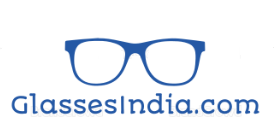How Prescription Safety Glasses Improve Workplace Safety in Pharmaceutical Industries
Share
In the pharmaceutical industry, ensuring the safety of employees is paramount due to the numerous hazards present in this environment. One of the critical safety measures is the use of prescription safety glasses. These glasses provide both vision correction and vital eye protection, significantly enhancing workplace safety. This article explores how prescription safety glasses contribute to a safer working environment for pharmaceutical professionals.
Protection from Chemical Hazards
- Chemical Splashes: Pharmaceutical professionals frequently handle various chemicals, including solvents, reagents, and active pharmaceutical ingredients. Prescription safety glasses protect against accidental splashes, preventing potentially severe eye injuries.
- Vapors and Fumes: Some chemicals emit harmful vapors or fumes that can irritate or damage the eyes. Safety glasses with appropriate coatings help shield the eyes from these invisible hazards, ensuring ongoing protection during experiments and manufacturing processes.
Prevention of Particulate Contamination
- Dust and Particulates: The pharmaceutical industry involves processes that can generate dust and particulate matter. Prescription safety glasses with side shields or wrap-around designs prevent these tiny particles from entering the eyes, reducing the risk of irritation or infection.
- Sterile Environments: Maintaining sterility is crucial in pharmaceutical settings. Safety glasses help prevent contamination by acting as a barrier between the worker and the sterile environment, ensuring that particulates from the eyes do not compromise product integrity.
Enhanced Visual Clarity and Precision
- Clear Vision for Precision Work: Accurate vision is essential for pharmaceutical professionals who need to read fine print on labels, measure precise quantities, and observe minute details during inspections. Prescription safety glasses ensure that vision correction needs are met without compromising safety.
- Anti-Fog Coating: In environments with varying temperatures and humidity levels, anti-fog coatings on safety glasses maintain clear vision, preventing fogging that could impede the ability to see clearly during critical tasks.
Compliance with Safety Regulations
- Regulatory Requirements: The pharmaceutical industry is subject to strict safety regulations. Prescription safety glasses that meet ANSI Z87.1 and OSHA standards ensure compliance, protecting both employees and the company from potential legal issues.
- Employee Confidence and Safety Culture: Providing high-quality safety equipment like prescription safety glasses demonstrates a company's commitment to employee safety, fostering a culture of safety and boosting employee confidence in their workplace protection.
Tailored Solutions for Specific Needs
- Customized Lens Options: Suppliers like GlassesIndia.com offer various lens options tailored to the needs of pharmaceutical professionals. These include anti-glare coatings for bright laboratory lights, blue light filters for prolonged screen use, and photochromatic lenses for varying light conditions.
- Comfort and Fit: Prescription safety glasses designed for comfort with adjustable features and lightweight materials ensure that employees can wear them for extended periods without discomfort, promoting consistent use.
Real-World Benefits and Case Studies
- Case Study: Chemical Manufacturing: In a pharmaceutical company’s chemical manufacturing unit, the introduction of prescription safety glasses reduced the incidence of eye injuries by 50%. Employees reported better vision and fewer accidents related to chemical splashes.
- Case Study: Research Laboratories: Research laboratories within pharmaceutical firms have noted improved accuracy in experimental procedures and data recording, attributed to the clear and precise vision provided by prescription safety glasses.
Conclusion
Prescription safety glasses are an essential component of workplace safety in the pharmaceutical industry. They protect against chemical hazards, prevent particulate contamination, enhance visual clarity, ensure regulatory compliance, and foster a culture of safety. By investing in high-quality prescription safety glasses, pharmaceutical companies can safeguard their employees’ health and well-being, ultimately contributing to a safer and more efficient workplace.
